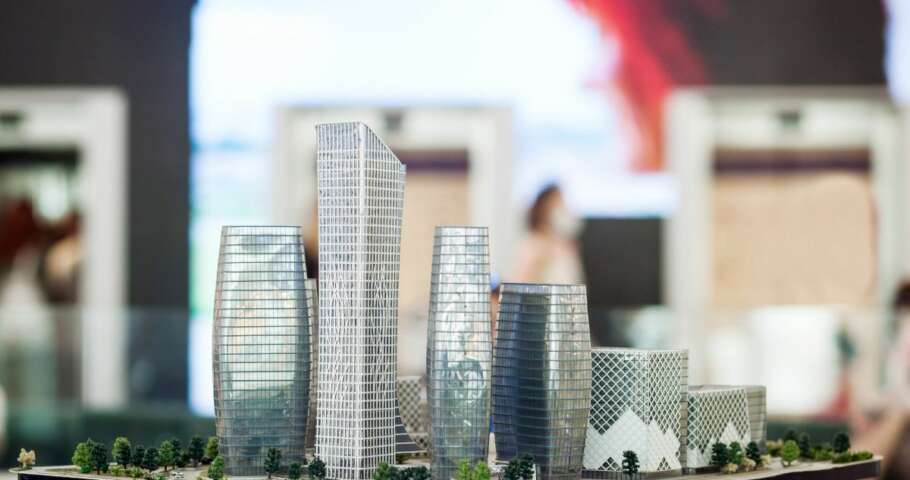Real estate industry in The United Arab Emirates is an important pillar of the country’s economic diversification. In fact, real estate activities generate around 5.5 percent of the UAE’s overall GDP (Gross Domestic Product).

Being a popular destination that attracts millions from all around the globe for its rich culture, diversity, tolerance, and thriving economy, the UAE is considered an ideal country for real estate investment. And while purchasing a property in the UAE as an expatriate can be exciting, navigating the local real estate market and understanding the legal requirements might not be a very thrilling step, but it’s an important one. In this comprehensive guide, we will provide you with essential information and guidance on buying a property in the UAE as an expat.
Expats in the UAE are given the right to own real estate, however, the regulations are different for each emirate, with the main types of ownership options being: Freehold, Leasehold, Musataha, Common Hold, and Usufruct. Understanding the distinctions of each one of these options will provide valuable insights and help you explore the available options effectively.
Freehold
In a nutshell, Freehold permits expats to own property or land indefinitely. With Freehold ownership, the buyer not only owns the property, but the land it was built on as well. Additionally, Freehold grants the buyer complete control over the property and land and the chance to pass the property down to heirs. It also guarantees a high ROI which can reach up to 7% on apartments in Dubai, for example. The UAE has designated Freehold areas where foreigners can own property without restrictions. Some popular freehold developments include Jumeirah Beach Residence, City Walk, Dubailand, and The Springs in Dubai, and Yas Island, Al Reem Island, and Saadiyat Island in Abu Dhabi. These areas provide a range of residential and commercial properties, offering diverse investment opportunities.
Leasehold
In Non-Freehold areas, expats can lease a property (but not the land it was built on) on Leasehold for a maximum period of 99 years, with the ownership returning to the Freeholder after this period of time. Although owning Leasehold properties does not grant full ownership and can be somewhat restrictive, it can still be a good option for those seeking long-term investment and affordability. It is worth mentioning that the contract of Leasehold properties can be renewed after 99 years.
Musataha
In Abu Dhabi, Musataha allows expats to own residential units for no longer than 50 years, with a contract that can be renewed with the agreement of the parties for another 50 years. This option grants the owner of the property the right to use, construct, or alter the property within the specified period.
Common Hold
Under this ownership type, you own the property, but not the land it is built on. This type of ownership is common in apartment complexes, where you own the unit you purchase but are not solely responsible for paying the commonhold property fees, such as maintenance fees which are typically divided among all owners or occupants.
Usufruct
This type of ownership allows expats to own residential units for no longer than 99 years, without the ability to make any changes to the property.
Understanding the Market
Diving into the UAE’s real estate market without adequate knowledge of its ins and outs can lead to confusion and might result in investing in the wrong type of property. Carrying out comprehensive research to properly understand the local trends, market conditions, and pricing is an important step you need to make before committing to a deal. Working with a reputable agency can provide valuable insights into the market and help you in finding properties that align with your preferences and budget in order to help you make informed decisions and maximize your investment potential.
Legal Considerations
When purchasing property in the UAE, it is essential to adhere to the legal requirements established by the government. Hiring an experienced legal team such as the real estate team at Khawla Saeed Advocates & Legal Consultants can provide valuable insights and assistance in reviewing all relevant contracts, including the sales and purchase agreement, to ensure compliance and protect your interests.
Future Prospects
The UAE’s real estate market is constantly changing and evolving, making the country a remarkable place for those looking to invest. The consistent and rapid changes the real estate market is witnessing are driven by infrastructure development, economic growth, and government initiatives. Before making a real estate investment, it is essential to evaluate the long-term prospects of the property. Understanding the market dynamics and growth potential will help you in making the right decisions. For consultations on any legal aspect of real estate, please contact us at Khawla Saeed Advocates & Legal Consultants and allow us to help you as you embark on this exciting journey.




